Watch the Fairtrade Foundation film “Unravelling the Thread”
All about the cotton journey from farmers’ fields in developing countries to our wardrobes.
Why does Fairtrade cotton matter?
*Many of the facts and figures on this part of the website are taken from the Fairtrade Foundation’s “Cotton Briefing” paper.
Fairtrade cotton really matters because…
- Cotton prices are volatile and in long-term decline. Real cotton prices, taking inflation into account, have fallen from more than $3.00/kg in the 1960s to $1.73 in 2014. Government subsidies for domestic cotton production totalled $6.5bn in 2013-14, led by China with $5.1bn, but also the USA and the European Union.
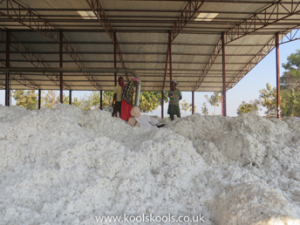
Raw cotton before ginning in Odisha, India. The farmers who produced this cotton are fortunate, because they produced on Fairtrade terms. - As the result of these Government subsidies and the corresponding global cotton price fluctuations, the 90 million rural households directly engaged in cotton production in developing countries are highly vulnerable, and often find it very difficult to sell the cotton that they produce at sustainable prices.
- Most farmers have to take loans from local cotton traders/moneylenders at exorbitant interest rates – up to 100 percent for cash and 30 percent when jewellery or land is put up as collateral. They are further exploited by these traders who pay low prices and under-weigh their crop when farmers sell their cotton to them to repay the loans.
- One direct result of the unstable world cotton price is the largely unreported, on-going human tragedy of 280,000 Indian cotton farmer suicides over the past 20 years, a depressing statistic corroborated by the Fairtrade Foundation.
- On a brighter note, after years of decline, sales of Fairtrade cotton have increased recently, and Koolskools client schools and corporate customers can be proud that they have contributed to this increase.
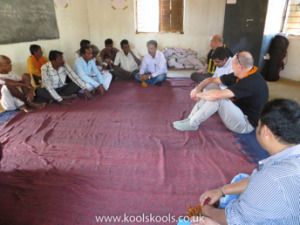
Under Fairtrade terms, buyers must pay producers at least a Fairtrade Minimum Price (FTMP), which is based on extensive research on the Cost of Sustainable Production in each country or region, and fixed after a multi-stakeholder consultation process.
This price floor acts as a safety net for farmers at times when market prices fall below a sustainable level. Without this minimum price, farmers are at the mercy of sudden drops in prices, as often happens in the cotton sector.
On top of stable prices, producer organizations are paid a Fairtrade Premium (FTP) – additional funds to invest in social or economic development projects. The use of this Fairtrade Premium money is decided upon democratically by the farmers themselves, according to their needs.
The story of Somji - one of the very first Fairtrade cotton farmers
At 58, Kursenga Somji doesn’t think he did anything new by enrolling as the first organic farmer with Chetna Organic in 2004. For generations, everybody in his family and his Gond tribal village of Pedda Sakeda in the Adilabad district of India has been farming organically.

Somji saw chemical farming more as a short but devastating deviation from their traditional farming ethos which was organic, natural and environmentally friendly. It was a deviation born of the misplaced eagerness of the Tribal Development Agency to introduce chemical farming to tribal farmers with a hope to increase their ‘scanty yields’- as defined by chemical fertilizer and pesticide companies.
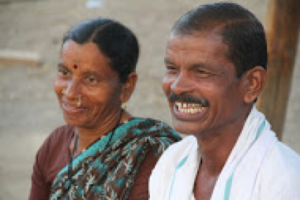
Today, after 10 years with Chetna Organic, Somji can be classed as a veteran organic and Fairtrade cotton certified farmer. Somji feels that the U-turn they took a decade ago – from chemical farming back to organic, whilst embracing in parallel the newly introduced Fairtrade cotton farming – was the critical choice that has helped him and his fellow Chetna farmers sail through the droughts and price fluctuations of recent years.
Somji clearly remembers when the move towards farming with chemicals started. After the Integrated Tribal Development Agency was established in Utnoor, the agency staff trained some farmers in the use of chemical fertilizers.
The farmers were given 15-20 kgs white, black and red colored fertilizers free of cost and were assured of pest control and better yields. That particular year the crops grew spectacularly well and yields too increased significantly. The next year, ITDA did not give the fertilizer for free but the fertilizer was being sold in some shops in the local market. That’s how the chemicals entered their fields and into their lives.
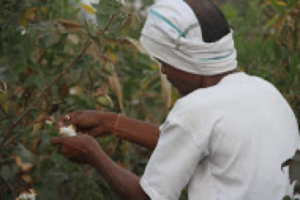
Encouraged by the increase in yields and significant decrease in bollworm, everybody in the area took to using chemicals in their farming. However, after between 3 to 5 five years, the yield started falling, soil started craving for more chemicals, and pests had grown resistant to pesticides. Fearing loss of crop, farmers increased the quantities.
This cycle continued unabated for almost 18 to 20 years. It came to a point where input costs started exceeding returns from the sale of crops, and farmers were suffering huge losses and were trapped in debts. Unable to pay, some took their own lives.
The Return to Organic and the Birth of Fairtrade
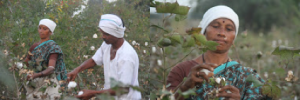
Somji remembers the day “all farmers from the village went to see the demonstration. Most were sceptical, but since it was exactly like the methods we practiced traditionally, some of us decided to form a group with 10 members and wanted to give it a go.
To actually ascertain for ourselves if organic was more beneficial than chemical farming, we tried out these methods in just one acre of our land with cotton. That year we were given two truckloads of poultry manure. During the summer, Chetna staff trained us in organic practices. Following instructions, we used the poultry manure twice as top dressing for the soil.
The crop came out well and the yield too was ok. We didn’t see too much of a difference in the yield between organic and chemical farming. That year the rate for cotton was good and we also got a premium for our organic cotton. We earned better profit than the conventional farmers. Our costs were much less and profits were higher.”
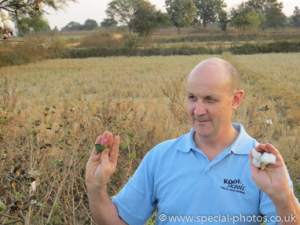
This proved to be a clincher for both Somji and other farmers. They continued trials for 3 years, became Fairtrade-certified during that time, and slowly the rest of the farmers joined them too. By 2006-07, almost all households in Pedda Sakeda village had moved to organic. Currently, of the 62 houses in the village, 58 households have adopted organic farming.
Being among the first group of farmers to convert to organic and Fairtrade, Somji commands immense respect in the region where organic farming has achieved a cult status. It’s more a statement of belief and commitment towards environment for the tribal people who inhabit this land.
Somji says anybody who understands the principles behind organic agriculture will definitely adopt it. There is a certain simplicity to his message “Farming is for us and for our fellow human beings. We should not expect or look to earn huge profits from it.”
Mr Pravakar Meher, “Pratima” Fairtrade/Organic Grower Group, Odisha, India, tells us what Fairtrade means to his farmers...
…My message to consumers: BUY MORE FAIRTRADE SO THAT WE CAN DEVELOP MORE!!…”
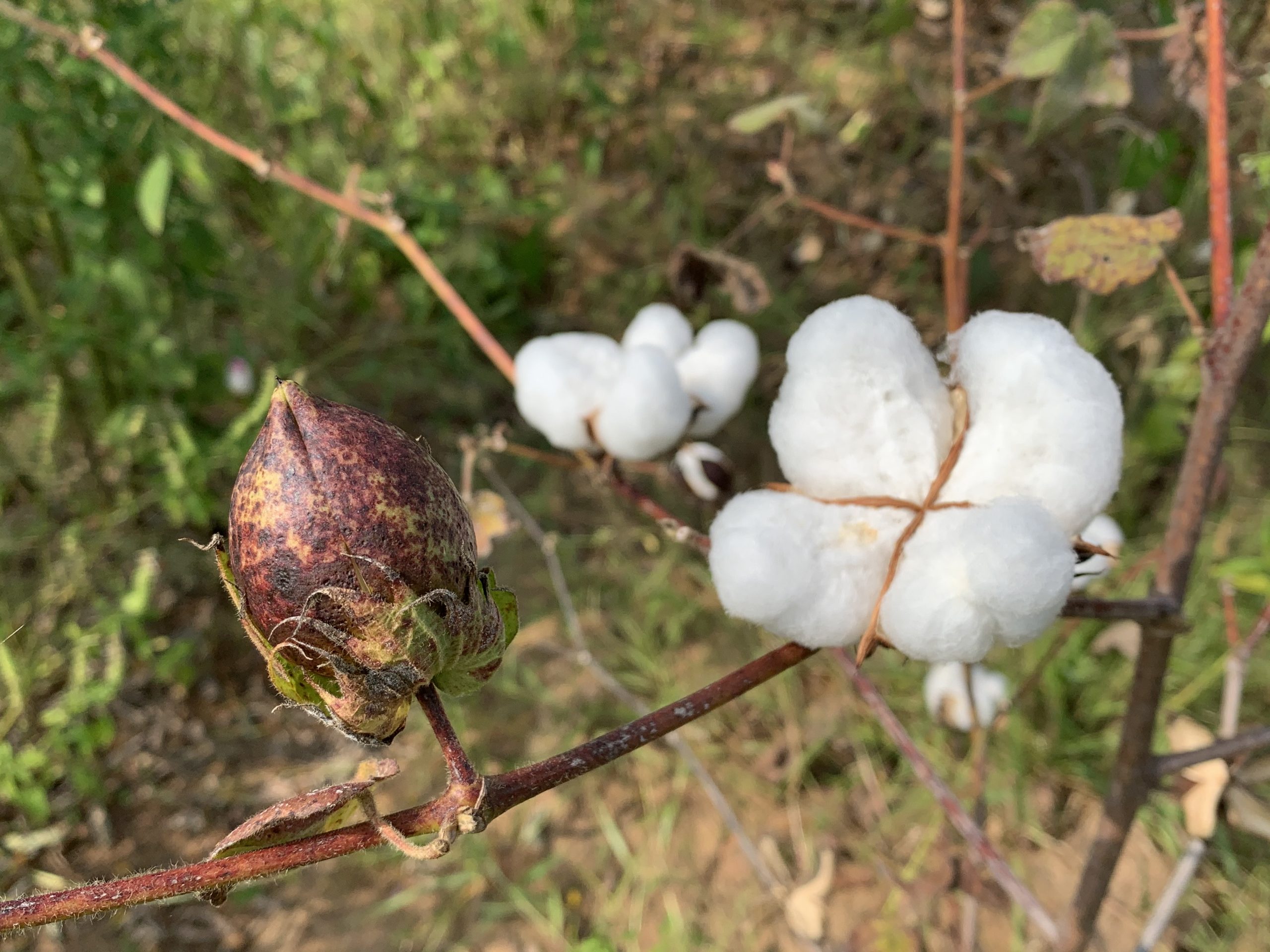
Pratima Agro and Paper Ltd operates a ginning unit and works with 4,000 farmers from more than a hundred villages in the contract production of organic cotton. It provides services such as pre-finance for seeds and inputs which enables farmers to bypass local traders. The company began working with the Balangir farmers in 2007, first organising them into village self-help groups.
The farmers gained Fairtrade certification in 2010, with the company acting as the Promoting Body, supporting the farmers to strengthen their organisation with the aim of eventually becoming Fairtrade certified in their own right. By 2014 Pratima Organic Grower Group had become the second Fairtrade cotton producer organisation in India to transition from contract production to a fully-fledged, farmer-owned small producer organisation.
The Global Cotton Market and Fairtrade
Cotton is grown in warm places such as India, West Africa, China, Brazil, Zimbabwe, parts of the European Union (Greece, Spain), Turkey, Egypt, Syria, Turkmenistan, Peru, Argentina, the southern states of the USA and Uzbekistan, and many more.
There are 26 Fairtrade certified cotton producer organisations located in nine countries around the world: Benin, Brazil, Burkina Faso, Egypt, India, Kyrgyzstan, Mali, Nicaragua and Senegal.
By favouring democratic organizations of small farmers, Fairtrade provides the stability that rural families need to survive and plan for the future. Producers jointly own and manage FLO: they are represented as members in its highest decision-making body – the Board of Directors.
Through the Board and its committees, producers are involved in decisions regarding overall strategy and setting Fairtrade prices, premiums and standards. Fairtrade standards can be consulted on www.fairtrade.net.
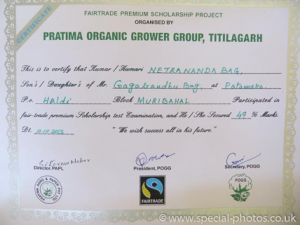
can improve their lives, businesses and communities due to the combined positive impact of the Fairtrade Minimum Price and the Fairtrade Premium.
Relevant standards for cotton include Generic Producer Standards for Small-scale Producers and Contract Production (a particular farmer set-up currently restricted to India and Pakistan) which, in addition to ensuring the payment of minimum prices and community premium, and democratic participation of producers, set clear minimum and progressive criteria to ensure that the conditions of production and trade of all Fairtrade certified products are socially, economically fair and environmentally responsible.
One minimum environmental criterion for example is the restriction on the use of some of the most hazardous pesticides. In addition, Generic Trade Standards, in combination with Fairtrade Standards for Seed Cotton, assure fair terms of trade between all operators in the supply chain and require full physical traceability in the case of cotton.